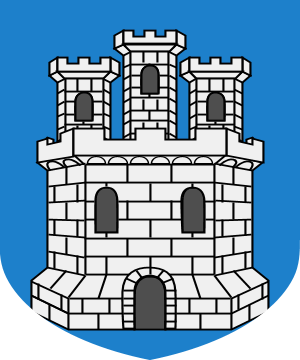Guard
The Guard oversee various law enforcement, security, and societal safety needs in Albion, which in their case includes dealing with dangerous magical beasts or effects, as well as the more human sort of problem. Their offices, workspaces, and duelling salle are at the Guard Hall in Trellech.
Their duties include:
"From my tongue to your ears" - a phrase to swap languages.
Finding out what was tried before, so as not to duplicate effort.
A hard no (any further question is insubordination).
A set phrase for asking further questions.
Setting limits on resources or actions.
Phrases that identify the complexity of the problem, as well as the level of risk.
Acknowledgement that someone is listening.
- Tending to non-magical people who stumble into magical spaces (relatively rare per capita, but a regular occurance when you take an entire country into consideration)
- Wards and protections
- Continuing magics, such as infrastructure
- Escort duty
- Investigating murder and other crimes
- Commercial crimes like adulterated goods, fraud, etc.
References
Pastiche and Wards of the Roses both center on Guard investigations of different kinds. Upon A Summer's Day takes a look at how the Guard is responding to World War 2 (and the Blitz, in specific).Structure
The majority of the Guard are "regular Guard" (or apprentices), referred to as Guard Lastname. Some are based in Trellech or London, but many are based in the magical towns and villages, to be the first point of contact in case of need. They have quick communication methods with Trellech to share information or get additional help. Most Captains of the Guard share in a duty rota for general calls, but a number also have specific areas of interest or responsibility.- Richard Edgarton : Unusual sorts of problems (by the 1920s)
- Kate Davies : Active investigations
- Hippolyta FitzRanulf : Homicide or suspected homicide
- Antimony Orland (Point By Point) : Matters relating to inheritance
Oaths
The Guard make what is roughtly speaking, a chivalric oath, designed to prevent abuse of power. Richard Edgarton discusses it in Pastiche:“Roughly speaking, it’s a commitment not to king or country or even Council, but to magic and those who bear it. And a commitment to protect those without magic.” He paused, gathering his thoughts, because the other part of it always felt far more personal to him. “The rest is about behaving like a knight should, near enough, to be men and women who strive to be good and honourable, to use the least force, restraint, or compulsion possible, magical or otherwise. Not using our positions for personal advantage, being fair to all we deal with as a Guard, regardless of their station or status.”
Language and codes
The Guard use a variety of code words (Kate gives an example in Wards of the Roses). Codes are also assigned to specific events or investigations. The Guard uses one of the lost tongues, a language used only by the Guard. They swear as part of their oath not to reveal the details, and use it sparingly around outside listeners. Guards are supposed to have a vocabulary of a hundred or so words and phrases for key needs memorised, there are some standard formal phrases for regular needs. People skilled in it can have complete conversations, with substantial nuance, but only about one in five to one in ten get functionally fluent in it. Phrases mentioned include (from Wards of the Roses chapters 13 and 15:Uniform
The uniform is a deep blue (indigo dye with a mordant that keeps it on the dark side) jacket, a cream tunic with a high collar or white button up shirt, and either trousers or a split skirt. Exercise uniform includes a breast binder for women, trousers, and tunic. Sturdy boots are the footwear of choice, but there are plain black dress shoes for formal occasions. The design changes to keep up with non-magical fashion as needed. The goal is for it to be a recognisable uniform for people of Albion and a reasonably sedate set of clothing for non-magical folks, something that doesn't draw much attention. As a result, the Guard don't wear visible symbols of rank, but instead wear a pendant under their tunic that identifies them as part of the Guard. (Chapter 13 of Pastiche has Richard Edgarton showing his, as well as a password to identify himself to a lockkeeper.) It is stamped with the walls of Trellech, and the words "diligence, justice, prudence, temperance, and truth" inscribed in English so anyone literate can read them.Training and skills
The Guard takes in a number of apprentices every year, from a variety of sources. Some attended one of the Five Schools (and generally people selected to be officers later went to Schola or Alethorpe) but a number of village and local Guards went straight into apprenticeship at 13. They are trained in a wide variety of physical and magical skills, including:- Protecting scenes and spaces until a proper investigation is done.
- Creating and preserving a chain of evidence.
- The magical equivalent of handcuffs and other restraints (including binding someone's magic)
- Creating a space for questioning. (For those with the magical strength and skill to do this one)
- Confirming who has handled an item.
- Identifying the presence of magic and identifying the source(s)
- Swapping out items (i.e. something non-magical for something magical that's fallen into the wrong hands.)
- Various powerful magics, including the Word of Command or the Extraordinary Magics (detailed investigation using rare Materia, mentioned in On The Bias.)



